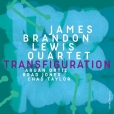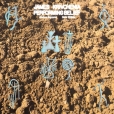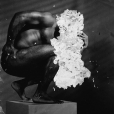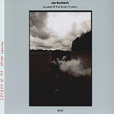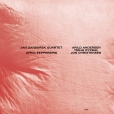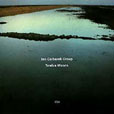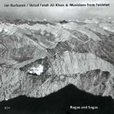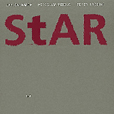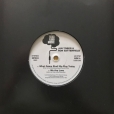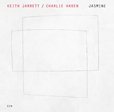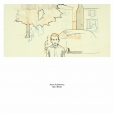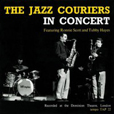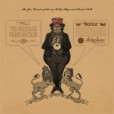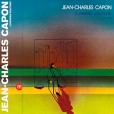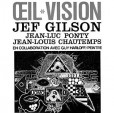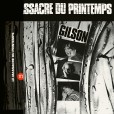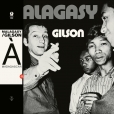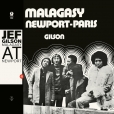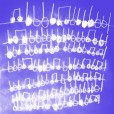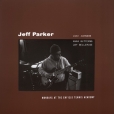Your basket is empty

‘One of the fiercest sounds in modern jazz… The New York-based sax player and co mix it up, from funk shuffle to full-on swing, on their blistering fourth album, comprising eight tracks of angular yet explosive experimentation…
‘The opening title track sets the tone, interweaving Lewis’s expressive lines among pianist Aruán Ortiz’s polyrhythms before reaching a blistering sax solo. As the album progresses, there is variety amid the consistency of Lewis’s blasting tone: a funk shuffle on Swerve, Latin rhythm on Per 6, and fast-paced swing on Black Apollo…’ (The blistering Guardian).
Thrilling, intensely rhythmic, questing music, featuring brilliant, dynamic contributions by Joshua Abrams and Sam Wilkes.
Very warmly recommended. Check out Bracelets For Unicorns.
‘The core of the album is a lush, opulent matrix of percussion ranging from the familiar — hand claps and drum machines — to the mysteriously verdant, sampled largely from Krivchenia’s own performed field recorded collection. For years, he would record any and all of his musical encounters with natural objects: performing on a particularly resonant log on a hike, throwing rocks into a pristine pond, tap dancing in the mud. Not just a novel set of sounds, but a new rhythmic language. The particular give, the anticipatory rustle, the extra breath of a hollow log when functioning as a kickdrum provides a greenness that overtakes the rhythmic grid, giving this music a peculiar kind of stickiness.’
A gospelized, autobiographical collage of raps, beats, modern jazz and songs, featuring the in-demand drummer alongside an expansive roster of collaborators bringing together artists from his hometown of Houston (vocalists Corey King, Lisa E. Harris, Fat Tony, Jawwaad Taylor), those he became close to over several years living in LA (Sam Gendel, Zeroh, Mic Holden, Josh Johnson, fellow International Anthem artist Carlos Niño), and other creative partners from his life-long journey in sound (Chassol, Svet, Kenneth Whalum).
‘Rooted in his faith, Jamire opens the album with Hands Up, a devotional hymn cut against the stark reality of the modern world that sounds like an apocalyptic middle-grounding of Kendrick Lamar’s To Pimp A Butterfly and Merry Clayton’s Gimme Shelter. Whether in the rousing, spiritual Just Hold On or the fluid verses of Fat Tony on Safe Travels, the music exists in the tension between higher realms and social realities — what Jamire calls the “duality of a personal thing and what I’m seeing in my community, in the Black community, as a Black man.” ‘
Playing tenor and bass saxophones, clarinet, flutes, percussion, in 1970 — with Terje Rypdal, guitar and bugle, Arild Andersen bass, african thumb piano and xylophone, and Jon Christensen, percussion.
Rainer Bruninghaus, keyboards; Eberhard Weber, bass; Manu Katche drums; Marilyn Mazur percussion; Agnes Buen Garnas, vocal; Mari Boine, vocal.
With Ustad Fateh Ali Khan singing; Ustad Shaukat Hussain, tabla; Ustad Nazim Ali Khan, sarangi; Deepika Thathaal, voice; Manu Katche, drums.
With Miroslav Vitous and Pete Erskine.
Gorgeous, direct duets, love songs, close in spirit to The Melody At Night With You.
With Joshua Abrams, Hamid Drake, Jonathan Doyle, and Josh Berman.
‘At the beginning of 2017, Chicago vibraphonist Jason Adasiewicz brought a quintet into the hallowed halls of Electrical Audio, Steve Albini’s legendary studio, to record the soundtrack for a new film, Roy’s World: Barry Gifford’s Chicago, a documentary by Rob Christopher based on the Roy’s World series of short stories by Barry Gifford.
‘It’s really an ensemble effort, the spotlight on the gorgeous compositions and spacious sensibility, a perfect complement to Christopher’s fascinating, beautiful film, which has a noir vibe set in a fifties version of the Windy City conjured by means of vintage found footage, narration by Willam Dafoe, Matt Dillon, and Lilli Taylor, and Adasiewicz’s score. Check the balafon-led groove of Blue People, nodding to Fela… and bluesy, swinging charts throughout, with elements that might recall the post-hard-bop Blue Note records of folks like Andrew Hill, Sam Rivers, and Grachan Moncur III, Roy’s World is more than a great soundtrack record, it’s a killer programme of new tunes played by a monstrously strong band recorded and mixed at one of the world’s finest studios.’
Featuring Ronnie Scott and Tubby Hayes, from 1958.
Duets by Anouar Brahem’s accordionist and the classically-trained guitarist Seddiki, ranging from Greensleeves through Faure to their own improvisations and compositions.
The fabulous, legendary LP originally issued by Lumen in 1972, born out of several visits to Madagascar by Gilson and fellow musicians from Paris, and their collaborations with musicians on the island.
Fittingly the first trip was on May 13 1968, the day of the general strike in France: this is tumultuous, insurgent, joyous, blisteringly swinging, outernational Malagasy jazz, including a a charged, unmissable The Creator Has A Masterplan, and Avaradoha, a composition by Madagascan saxophonist Serge Rahoerson (who leads this recording), which was the anthem of the rotaka protests in 1972, bringing down the neo-colonial First Republic of Madagascar. The closer showcases various traditional Madagascan percussion instruments, played by the same trio which that year recorded Le Massacre Du Printemps, Gilson’s avant-noise homage in memoriam of Stravinsky.
Hot.
Jef Gilson, Sylvin Marc and his cousin Ange Japhet, Del Rabenja, Gérard Rakotoarivony and Frank Raholison, blending together bebop, sub-Saharan roots and electric funk.
Requiem Pour Django, Dizzy 48 and Anamorphose — renamed Salegy Jef after this re-routing via Madagascar — rejuvenate Gilson compositions from the previous couple of decades. Newport Bounce is a reworking of Interlude, recorded by Gilson in 1969 with Philly Joe Jones. Le Newport was a club in rue Grégoire de Tours, Saint Germain des Prés.
‘2 LPs of long-form, lyrical, groove-based free improv recorded live at a bar in LA’s Highland Park neighborhood with just enough space in the back for Parker, drummer Jay Bellerose, bassist Anna Butterss, & alto saxophonist Josh Johnson to convene in extraordinarily depth-full & exploratory music making. Gleaned for the stoniest side-length cuts from 10+ hours of vivid two-track recordings made between 2019 & 2021 by Bryce Gonzales, Mondays at The ETA is a darkly glowing séance of an album, brimming over with the hypnotic, the melodic, & patience & grace in its own beautiful strangeness. Room-tone, electric fields, environment, ceiling echo, live recording, Mondays, Los Angeles. It belongs in the lineage of such canonical live double albums recorded on the West Coast as Lee Morgan’s Live at the Lighthouse, Miles Davis’ Friday & Saturday Night at the Blackhawk & Black Beauty, & John Coltrane’s Live in Seattle.
‘While the IVtet sometimes plays standards &, including on this recording, original compositions, it is as previously stated largely a free improv group — just not in the genre meaning of the term. The music is more free composition than free improvisation, more blending than discordant. It’s tensile, yet spacious & relaxed. Clearly all four musicians have spent significant time in the planetary system known as jazz, but relationships to other musics, across many scenes & eras — dub & Dilla, primary source psychedelia, ambient & drone — suffuse the proceedings.’
His first solo recording, in 2013-14; on top-quality vinyl, in a flipback sleeve.
‘Parker combines the dark tonal palette & percussive attack he’s long been known for with real-time processing elements & field recordings, deftly crafting a unique world of solo guitar music — multilingual, mysterious, alive with extraordinary sonic events, with a sturdy intelligence in charge & a raw homestyle vibe. The title composition sets the album’s cavernous mood. Terse lines & ricocheting loops morph into a gnarly ambient section that resembles Neil Young droning out over a vg+ copy of Discreet Music. Parker creates a different sort of ambient space in his take on Frank Ocean’s Super Rich Kids, bending the melody around a bossa nova rhythm into a moodsville tone poem. Parker makes an extraordinary long-form statement out of Chad Taylor’s Mainz, a piece he first recorded with Taylor & Chris Lopes on the album Bright Light In Winter. Twice the length of the trio recording, the multi-layered soliloquy finds Parker leaping from the high rung to damn near orchestral heights, pushing his techniques & concepts to the breaking points. To say Lush Life comes with formidable baggage is an understatement. Parker achieves instant classic status with a rendition that sounds beamed-in from a decommissioned satellite — burned out, covered in space grit, yet still formally nuanced & beautifully reflective of Strayhorn’s world-weary lyrics… An artist who’s clearly taking his music to the next level.’

